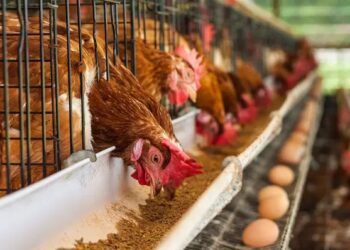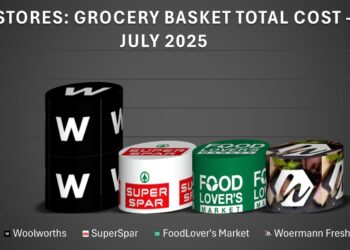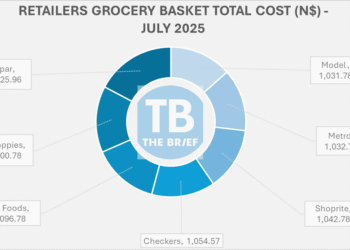
South Africa’s average salary posted a dramatic fall in May, at a time when consumers are battling skyrocketing prices of food and fuel, the latest data from payments clearing house, BankServAfrica shows.
The country’s average take-home pay in May plunged 6.7% to R14,696 when compared to the same period during the prior year and was one of the largest annual falls on record, BankServAfrica said. At the end of the previous month, South Africans took home R15,193 on average.
Compared to a year ago, the May average nominal pay was also 0,1% down, dropping to R14,817. It was the lowest since July 2021.
“With ever-increasing claims on the disposable income of households, consumer spending that contributes about 63% of South Africa’s GDP is likely to feel the strain in coming months,” BankServ said in its report.
South African consumers are buckling under pressure on the back of rising inflation eating into their discretionary spend. South Africa’s consumer inflation index in May hit 6.5%, exceeding the Reserve Bank’s upper end of its inflation-targeting band. The increase was the biggest since January 2017 and was primarily driven by food and oil price rises caused by Russia’s invasion of Ukraine, the Reserve Bank said.Â
“The sources of higher inflation, specifically higher food and fuel prices, are still in a relentless upward trend (driven to a large extent by the impact of the conflict between Russia and Ukraine) and unlikely to abate in the short term, while the risk of second-round effects on the consumer basket is on the rise,” it said.
Inflation is expected to shoot even higher during the latter part of the year, Elize Kruger, an independent economist, said.
“Consumers will have to brace themselves for an average headline CPI of around 7% in the second half of 2022, which will further erode purchasing power,” Kruger said.
“As such, more declines in average real salaries can be expected in coming months,” she said.
Although salaries are on the decline, more people were paid in May, with the total number of people paid exceeding levels seen in 2020, during the infancy of the pandemic. The number of people getting salaries is now on with August 2019 levels, the highest monthly number in 2019, BankServ said.
The majority of the new salaries recorded resulted from employment opportunities within the lower income brackets, with wages of up to R5,000 per month. This was reflective of the return of casual and weekly workers, especially in the sensitive sectors that were hard hit during the lockdowns and the Covid-19 pandemic in general, said BankServ.Â
It said the comeback that is being staged by the tourism and entertainment industries was encouraging.-BI











